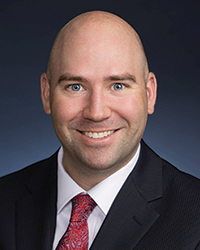Primer to mitigating risks when paying on commission - by Scott Regan

Fletcher Tilton PC
All employers should be aware of the Massachusetts Wage Act. The Wage Act is intended to prevent employers from improperly withholding their employees’ earned wages. As detailed below, even a potentially good faith misunderstanding of the law can result in serious consequences for employers. Importantly, the Wage Act also subjects certain corporate officers (e.g., presidents and treasurers) to individual liability for the employer’s vioilations of the Wage Act. Thus, employees may obtain a judgment against the employing entity and certain corporate officials.
Under the Wage Act, a prevailing employee is entitled to an award of treble damages. The employer and/or corporate official, in addition to paying their own attorneys’ fees and litigation costs, must also reimburse the employee for his or her reasonable attorneys’ fees and costs. Thus, employers and corporate officials face significant risks if an employee proves just a small amount of damages at trial.
Unfortunately, employers often realize far too late that their payment practices (even if common in the industry) do not comport with the Wage Act. By way of example, certain businesses have been known to pay their inside salespeople entirely by commissions or draws (i.e., advances on commissions). Under the Wage Act, sales commissions are wages when the commissions have been “definitely determined” (i.e., when they are mathematically determinable) and are “due and payable to the employee” (i.e., when any necessary contingencies for payment have been satisfied).
In Sullivan v. Sleepy’s LLC, 482 Mass. 227 (2019), the Massachusetts Supreme Judicial Court (SJC) held that inside salespersons who are paid only on draws and commissions must be paid separate and additional overtime and Sunday pay under Massachusetts law. In that case, the plaintiff salespersons worked at retail stores operated by the employers. Like many retailers, the employers paid the salespersons entirely on a commission basis. Specifically, as their compensation package, the salespersons received as their daily pay the greater of (1) their $125 recoverable draw; or (2) earned commissions in excess of $125.
The employees contended that the employers were required to pay them (1) separate and additional compensation under the Massachusetts overtime and Sunday pay statutes, even though the plaintiffs’ commission/draw payments always met or exceeded the minimum wage (currently $12.00 per hour) for the first 40 hours they worked and (2) one and one-half times the number of hours they worked over 40 hours or on Sunday (i.e., overtime pay). Unsurprisingly, the employers countered that the employees had already received all wages to which they were entitled.
The SJC disagreed with the employers and noted that the employees’ payment structure never changed based on whether they worked overtime. Thus, while the employers had received the benefit of the employees’ overtime efforts (e.g., not having to hire additional staff to complete the overtime work), the employees did not receive the required overtime pay intended to incentivize employees for the burdens of a long workweek. Accordingly, the SJC concluded that the payment arrangement violated the overtime statute and was not permissible unless there were timely separate and additional overtime payments.
In addition, and for similar reasons, the SJC concluded that the Sunday pay statute also prohibits employers from paying covered employees less than one and one-half times their regular rate for hours worked on a Sunday. Consequently, the SJC determined that the employees were entitled to separate and additional pay at not less than one and one-half times their regular rate for hours worked on Sunday. The SJC also iterated that employers cannot remedy Wage Act violations with retroactive payments, because it would ostensibly vitiate the requirement for employers to timely pay their employees all earned wages.
The Sullivan case has significant implications for employers that pay certain employees solely on a commission and/or draw basis. Employers should consider consulting with experienced employment law counsel regarding their payment schemes because determining the lawfulness of an employer’s payment policies and practices can be a complicated and fact-intensive process.
Scott Regan is a litigation attorney focusing on labor & employment, at Fletcher Tilton PC, Worcester, Mass.
Newmark negotiates sale of 10 Liberty Sq. and 12 Post Office Sq.


Four tips for a smooth 1031 Exchange - by Bill Lopriore

Five ways to ruin a Section 1031 Like-Kind Exchange - by Bill Lopriore

How COVID-19 has impacted office leasing - by Noble Allen and John Sokul








